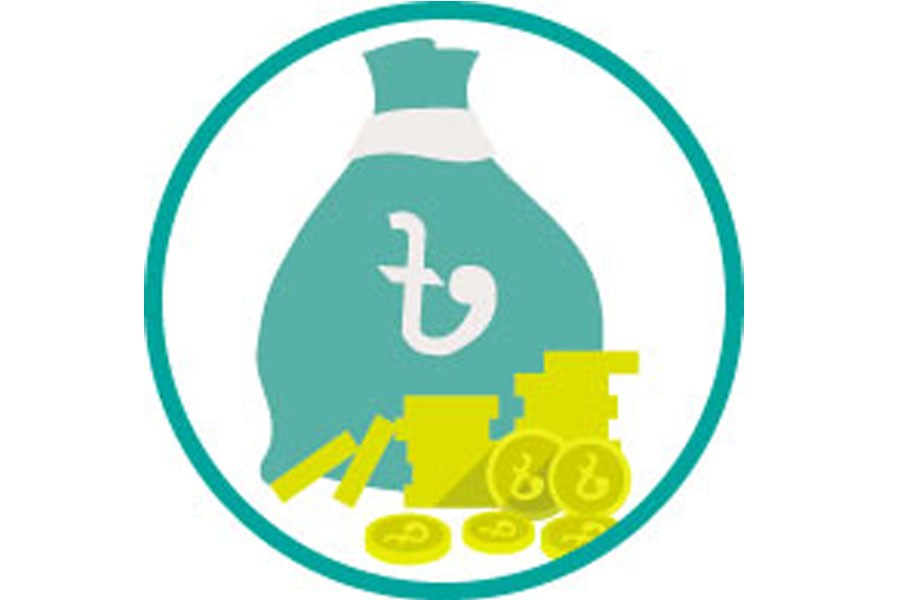The situation with the non-performing loans (NPLs) in the country's banking sector is quite perplexing.
The size of the NPLs, huge as it is, according to the Prime Minister's Economic Affairs Adviser, Dr Mashiur Rahman, has now gone beyond control.
Dr Mashiur Rahman while speaking at an event in Dhaka last week alleged that many big borrowers were not repaying loans to banks, leading to shrinkage of the banks' lending capacity.
Some former heads of the country's central bank also spoke at the same event. They too expressed their worries over an ever-increasing size of the banks' default loans.
The volume of NPL grew to more than Taka one-trillion at the third quarter end of 2021 from Tk 925 billion. The NPL has been growing unabated when almost everyone underscored the need for reining it in. The volume of NPL will be far bigger if the money written off by banks is considered.
Default in loan repayments is a normal phenomenon in any banking system, for some borrowers would, deliberately or otherwise, not repay as per schedule. But the problem surfaces when many big borrowers become habitual defaulters and try to use their connections with powerful quarters to evade payments to banks.
Undeniably, the country's banking system is in the grip of a strong default culture. Though that unsavoury culture has been eating into the vital of the system, banks, for reasons best known to them, are not keen on recovering their overdue loans, particularly from a section of large borrowers, using effective measures.
The ongoing Covid-19 pandemic has made the NPL situation even worse. Economic activities came to a halt when the government had imposed restrictions to contain infections and fatalities from the third quarter of 2020. The government to help businesses, announced stimulus packages for various categories of industries and enterprises. The central bank, to give breathing space to the pandemic-hit businesses, in March 2020 also put into effect a loan moratorium until June that year. The moratorium got extended several times until December last year.
The central bank, during a meeting with the top bankers, held in the last week of the just concluded calendar year, announced that there would be no more extension of the moratorium. It, however, offered some concessions to the borrowers. It said loans would not be categorised as classified if the borrowers concerned paid 25 per cent of their outstanding amount to banks within 31st December of 2021. The central bank, however, had kept the percentage at 15 in the case of the cottage, micro, small and medium enterprises (MSMEs).
The big borrowers also demanded a facility identical to that of the MSMEs from the central bank. Leaders of the country's major trade bodies met the top Bangladesh Bank officials on Thursday last and got what they wanted.
It is not that the central bank does not want to improve the loan situation. But not everything is under its control, it seems. Pressure groups, in some cases, are quite strong. Not all banks are that sincere to keep their loan portfolios tidy.
Allegations have it that some big borrowers are too powerful to influence the system of loan classifications. Even a few of them have remained afloat bending rules concerning the so-called structured loans. On occasions, the 'bank-client' relationship has come to the rescue of many top loan defaulters.
The actual size of the classified loans would be far bigger than what is found in books of accounts. Usual window dressing and write-off of loans help the banks show their classified loans smaller than actual. The moratorium put into effect during the pandemic has also helped save many loans from becoming classified.
So, the worries expressed by the adviser to the PM on economic affairs and former top central bankers over an ever-bulging volume of NPLs are very much justified. Some men in authority might deny, but the fact remains that the country's banking sector is in deep trouble because of the huge NPL that has been eroding the banks' profitability.
Had they been on a sound footing, financially, banks would not have to float bonds to meet their tier-1 or tier-2 capital requirements, as per the Basel Accords. Bond issuance involves a cost and banks could avoid that.
The central bank has legal powers to discipline the loan operations by the banks. But, in Bangladesh conditions, it is not always easy to exercise those. However, a strong propensity to succumb to outside pressure may lead to disasters. The people manning the central bank have to be alert to such an outcome. As far as management of NPL is concerned, it is high time that the central bank took a tough stance to help avoid a very troubling time ahead.


